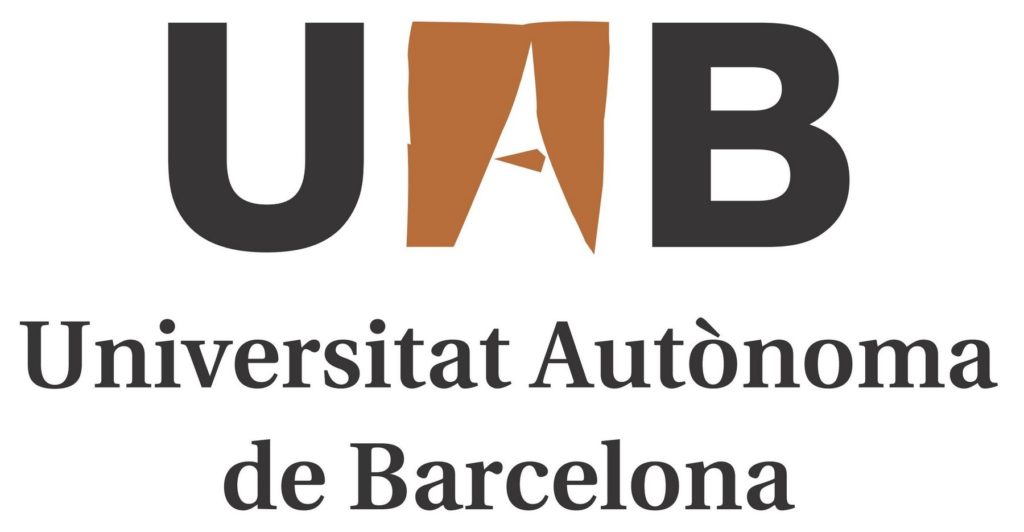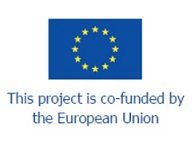 Are you a professional or a pre-professional nurse?
Are you a professional or a pre-professional nurse?
Do you use a second or foreign language at work?
Do you have a friend who speaks a foreign language at work or has a cultural background different from colleagues/customers?
Have you ever been in this situation?
Not knowing how to comfort a patient in distress?
Not remembering how to say, explain or pronounce a word?
Wanting to socialise with a colleague, but afraid that the words will not come naturally?
Having to report to your head of staff and being afraid of possible questions?
We are currently working on a solution for your problems – the e-learning platform Nursing on the Move.
 Nursing on the Move
Nursing on the Move
Eight partners with medical, academic and training backgrounds have started an intensive collaboration to develop a range of tools for e-learning and on-the-job communication for the nursing profession. Under the coordination of the University of Antwerp participants from Austria, Belgium, Finland, Italy, South-Africa, Spain and Sweden are engaged in the first phases of the Nursing-project which is to last until September 2017 and is co-funded by the European Commission. Scenarios, video cases, strategies and tips will guide (pre)professional nurses to a more appropriate and more effective communication in their clinical setting.
If you want to learn more about the background of the Erasmus+ project Nursing on the Move, please read the project summary by Prof. Kris van de Poel here.
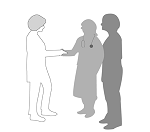 Looking back – Medics on the Move
Looking back – Medics on the Move
Medics on the Move is the predecessor of the current project, Nursing on the Move. Here you can see an example of a scenario that can be found on medics.comforpro.com, which offers language solutions for medics – when and where they need them:
English:
Doctor-Patient – Greeting a patient and saying goodbye
-Mrs/Mr Collins?
-Good morning/afternoon/evening.
-Have a seat.
-I’m Dr Homa.
-I am new on the team.
-I am a cardiologist.
-I worked as a cardiologist in Copenhagen in Denmark.
-I am from Iran.
-How can I help you?
…
-Good bye!
-Keep well!
Turkish:
Doktor-Hasta – Bir Hastayı Karşılama ve Onunla Vedalaşma
– Bay/Bayan Collins?
– Günaydın/Tünaydın/İyi akşamlar.
– Oturun lütfen.
– Ben Doktor Homa.
– Ben takımda yeniyim.
– Ben bir kardiyoloğum.
– Danimarkadaki Kopenhag’da bir kardiyolog olarak çalıştım.
– Ben İranlıyım.
– Size nasıl yardımcı olabilirim?
…
– Güle güle.
– Sağlıcakla kalın
Looking ahead – Nursing on the Move
 The e-learning-platform Nursing on the Move will be completed and online in October 2017 – we will keep you informed about ongoing developments!
The e-learning-platform Nursing on the Move will be completed and online in October 2017 – we will keep you informed about ongoing developments!
In the meantime, you can benefit from communication tips provided by Comforpro and published in the monthly newsletter GI-Mail – for an overview of the tips, please click here.
English
A new colleague
Dr: Hello, I am Susan Jones, the cardiologist.
Who are you? Are you new here?
N: Hello, I am Mary Caine.
Yes, I am the new nurse in the department.
Dr: Nice to meet you.
N: It is nice to meet you, too.
Origin
Dr: Where are you from?
N: I am from Berlin.
I studied at the Free University of Medicine.
Dr: Interesting. I am from London but I also studied in Berlin.
Study
Dr: What is your specialisation?
N: I trained as an emergency nurse.
Deutsch
Ein neuer Kollege
Dr: Hallo, ich bin Susanne Hager, Kardiologin.
Wer bist du? Bist du neu hier?
N: Hallo. Ich heiße Maria Ziegler.
Ja, ich bin die neue Krankenschwester in der Abteilung.
Dr: Es freut mich, dich kennen zu lernen.
N: Es ist auch schön dich kennen zu lernen.
Herkunft
Dr: Woher kommst du?
N: Ich komme aus Berlin.
Ich habe an der Freien Universität Medizin studiert.
Dr: Interessant. Ich komme aus London, habe aber auch in Berlin studiert.
Studium
Dr: Was ist deine Spezialisierung?
N: Ich bin als Notfall-Krankenpflegerin ausgebildet.
At the end of each topic, you will find a list of “words to know” and have the possibility to train and test your knowledge. In the First Aid Kit you will find further information about communication in nursing (language tips, intercultural communication tips, links).
For more information about Nursing on the Move, Medics on the Move and Communication for Professionals (CfP), visit us on Facebook or take a look at the videos on the CfP YouTube Channel.
Partners of the Erasmus+ project Nursing on the Move:
![]() The University of Antwerp is an internationally oriented research university with a student body of about 15,000. More than 2.500 are international students, with a majority coming from EU countries. It is characterised by its high standards in education, internationally competitive research and entrepreneurial approach. It offers 24 Bachelor, 40 Master and 48 Advanced Master degrees – all Bologna compliant – organised in 7 faculties, 48 centres and 18 institutes. ECTS is fully implemented in all study programmes. Doctoral programmes are available in all faculties. The University of Antwerp boasts several internationally renowned research groups. It is active in most EU funded programmes (Erasmus, Comenius, Grundtvig, Leonardo da Vinci, Tempus, Erasmus Mundus Action 1 & Action 2, ESF, 7th Framework, EU/US, Asia-Link, Edulink, …) and is involved in various international networks.
The University of Antwerp is an internationally oriented research university with a student body of about 15,000. More than 2.500 are international students, with a majority coming from EU countries. It is characterised by its high standards in education, internationally competitive research and entrepreneurial approach. It offers 24 Bachelor, 40 Master and 48 Advanced Master degrees – all Bologna compliant – organised in 7 faculties, 48 centres and 18 institutes. ECTS is fully implemented in all study programmes. Doctoral programmes are available in all faculties. The University of Antwerp boasts several internationally renowned research groups. It is active in most EU funded programmes (Erasmus, Comenius, Grundtvig, Leonardo da Vinci, Tempus, Erasmus Mundus Action 1 & Action 2, ESF, 7th Framework, EU/US, Asia-Link, Edulink, …) and is involved in various international networks.
 die Berater® is a private company founded in 1998 and employs around 450 members of staff who work in more than 50 locations all over Austria in the following fields:
die Berater® is a private company founded in 1998 and employs around 450 members of staff who work in more than 50 locations all over Austria in the following fields:
– Education and training
– Coaching and counselling
– Consultancy
– Outplacement
– EU projects
die Berater® offers educational seminars and training courses for individuals, organisations, and enterprises from soft skills to languages and information technologies. Their main aims are to motivate and qualify customers to make full use of their potentials in the economy, at the labour market and in their personal lives.
 Going International is an information platform for higher education in the fields of biomedicine, public health, international health and humanitarian assistance. With the online database »medicine & health« that specifically focuses on the medical and public health sector, GI wanted to make it possible for all institutions of higher education, even those with a very low budget, to promote their postgraduate education events to a large interested audience. Currently more than 1.100 organizers make use of the online database to publish information about their courses and conferences. The monthly newsletter „GI-Mail“ appears in German and English. More than 30 000 subscribers receive GI-Mail with up-to-date information about education and training opportunities, conferences, events in the health sector, news from politics and academia, as well as job and career offers and information about new books and publications.
Going International is an information platform for higher education in the fields of biomedicine, public health, international health and humanitarian assistance. With the online database »medicine & health« that specifically focuses on the medical and public health sector, GI wanted to make it possible for all institutions of higher education, even those with a very low budget, to promote their postgraduate education events to a large interested audience. Currently more than 1.100 organizers make use of the online database to publish information about their courses and conferences. The monthly newsletter „GI-Mail“ appears in German and English. More than 30 000 subscribers receive GI-Mail with up-to-date information about education and training opportunities, conferences, events in the health sector, news from politics and academia, as well as job and career offers and information about new books and publications.
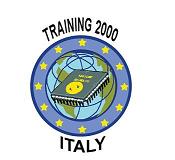 Training 2000 is an adult education and training organisation certified in the Marche Region for regional training, with experience in education and training in different sectors. At EU level, Training 2000 is involved in research and development of new methodologies in training (blended learning) applied within the LLP program. Since 1992, Training 2000 has been involved in international projects with partners from most European countries in which it has covered issues related to training of trainers, immigrants, requalification of people over 50, youth training, specialization for employed and unemployed people. Training 2000 is continuously promoting adult training in the region for apprenticeship, employed, unemployed, communities in the mountain area of the Appenines. At a national level, it cooperates with Associations of Industries and SMEs, universities, training providers, associations, the Ministry of education and labour.
Training 2000 is an adult education and training organisation certified in the Marche Region for regional training, with experience in education and training in different sectors. At EU level, Training 2000 is involved in research and development of new methodologies in training (blended learning) applied within the LLP program. Since 1992, Training 2000 has been involved in international projects with partners from most European countries in which it has covered issues related to training of trainers, immigrants, requalification of people over 50, youth training, specialization for employed and unemployed people. Training 2000 is continuously promoting adult training in the region for apprenticeship, employed, unemployed, communities in the mountain area of the Appenines. At a national level, it cooperates with Associations of Industries and SMEs, universities, training providers, associations, the Ministry of education and labour.
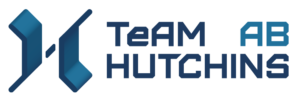 Founded in 1988, TeAM Hutchins AB is a development and consulting company which was built upon a sole proprietorship established in 1982. TeAM Hutchins AB has been involved in a large number of varied projects with a particular focus on distance education and sound/hearing. TeAM Hutchins AB is solidly founded in a medical context with several assignments for Swedish and international healthcare.
Founded in 1988, TeAM Hutchins AB is a development and consulting company which was built upon a sole proprietorship established in 1982. TeAM Hutchins AB has been involved in a large number of varied projects with a particular focus on distance education and sound/hearing. TeAM Hutchins AB is solidly founded in a medical context with several assignments for Swedish and international healthcare.
 North-West University (NWU) in South Africa was established in 2004 through the merger of two universities with very different histories. Today, the NWU is a multi-campus university across two provinces. Their coming together to form the NWU was a strong symbolic act of reconciliation and nation building. Since the merger, the NWU has produced annually a healthy financial surplus, improved student pass rates, increased research output and risen in the corporate governance rankings for South African universities. The NWU is a sustainable teaching-learning and research university that harnesses diversity and pursues innovation to make a meaningful difference in South Africa and the world. Multiculturalism, multilingualism and multi-nationalism are continuously encouraged as institutional asset. The NWU has approximately 60 000 students, representing all races. A recent development was the establishment of the Unit for Open Distance Learning (ODL) – only the University of South Africa and the NWU are granted the right to offer academic programmes in ODL.
North-West University (NWU) in South Africa was established in 2004 through the merger of two universities with very different histories. Today, the NWU is a multi-campus university across two provinces. Their coming together to form the NWU was a strong symbolic act of reconciliation and nation building. Since the merger, the NWU has produced annually a healthy financial surplus, improved student pass rates, increased research output and risen in the corporate governance rankings for South African universities. The NWU is a sustainable teaching-learning and research university that harnesses diversity and pursues innovation to make a meaningful difference in South Africa and the world. Multiculturalism, multilingualism and multi-nationalism are continuously encouraged as institutional asset. The NWU has approximately 60 000 students, representing all races. A recent development was the establishment of the Unit for Open Distance Learning (ODL) – only the University of South Africa and the NWU are granted the right to offer academic programmes in ODL.

